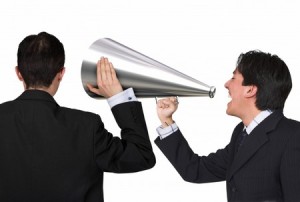I have no time for scientists who bitch behind closed doors about how they’re misunderstood by the public.
As Thomas Jefferson famously stated, which I always use to introduce my risk analysis course, “I know no safe depository of the ultimate powers of society but the people themselves; and if we think them not enlightened enough to exercise their control with a wholesome discretion, the remedy is not to take it from them but to inform their discretion by education.”
 I’m not a fan of education, but I am a fan of compelling, current, credible information.
I’m not a fan of education, but I am a fan of compelling, current, credible information.
Ezra Klein writes about the More Information Hypothesis: the belief that many of our most bitter political battles are mere misunderstandings. The cause of these misunderstandings? Too little information — be it about climate change, or taxes, or Iraq, or the budget deficit. If only the citizenry were more informed, theb thinking goes, then there wouldn’t be all this fighting.
But the More Information Hypothesis isn’t just wrong. It’s backwards. Cutting-edge research shows that the more information partisans get, the deeper their disagreements become.
This isn’t cutting-edge. This has been known for at least 50 years.
I heard the same thing about genetically engineered foods in the early 1990s (I’m old) and tried to tell the corporations, facts are not your answer: it’s compassion, stories.
That worked out well (that’s sarcasm).
Klein writes that in April and May of 2013, Yale Law professor Dan Kahan — working with co-authors Ellen Peters, Erica Cantrell Dawson, and Paul Slovic — set out to test a question that continuously puzzles scientists: why isn’t good evidence more effective in resolving political debates? For instance, why doesn’t the mounting proof that climate change is a real threat persuade more skeptics?
The leading theory, Kahan and his coauthors wrote, is the Science Comprehension Thesis, which says the problem is that the public doesn’t know enough about science to judge the debate. It’s a version of the More Information Hypothesis: a smarter, better educated citizenry wouldn’t have all these problems reading the science and accepting its clear conclusion on climate change.
That’s a new-fangled version of the needle theory – a willing public waiting to ingest science.
Doesn’t work like that.
Kahan goes on to say that the science community has a crappy communications team. Actually, scratch that: Kahan doesn’t think they have any communications team at all.”
Easy to throw darts from the outside. My team can tell you what you need to know about food safety science communication.
